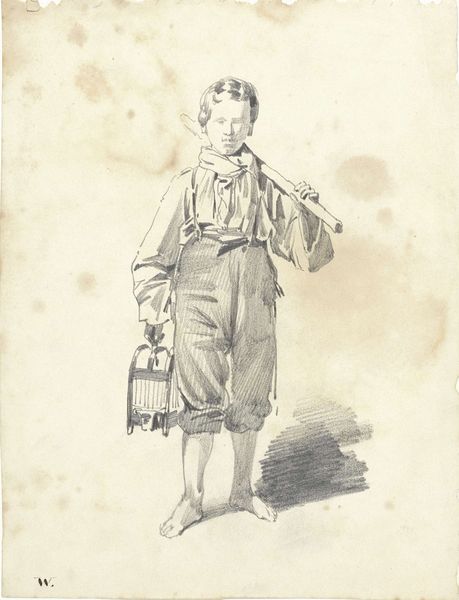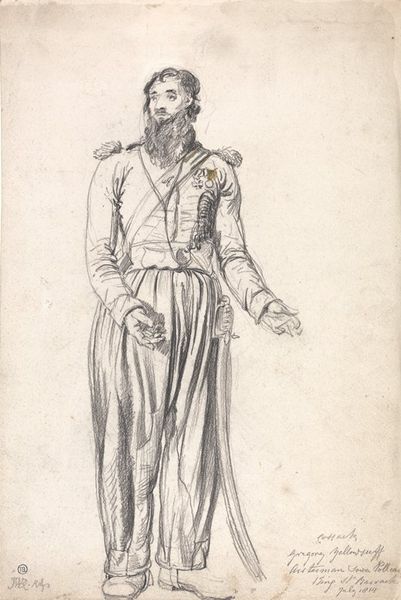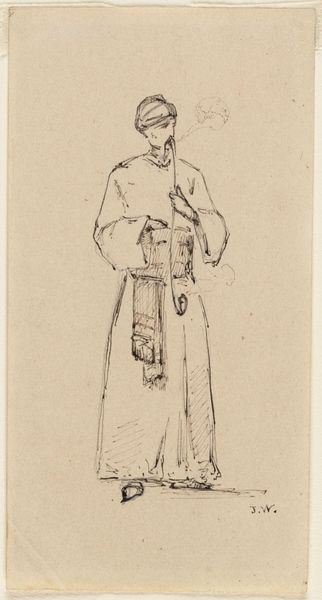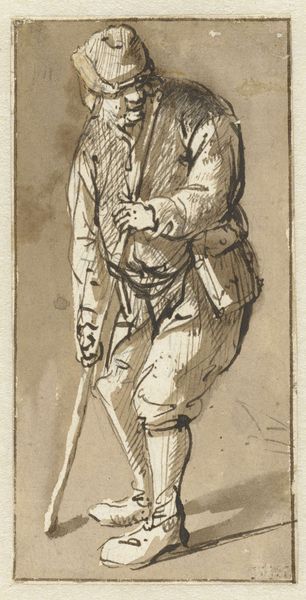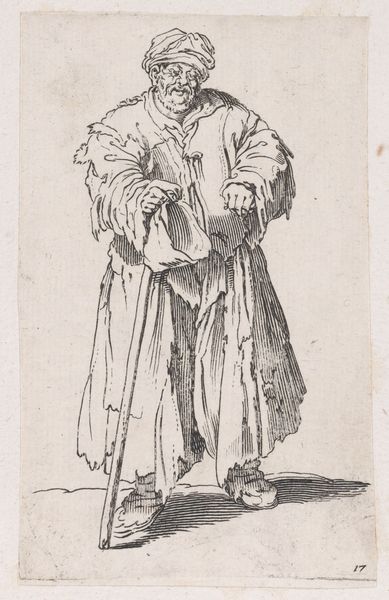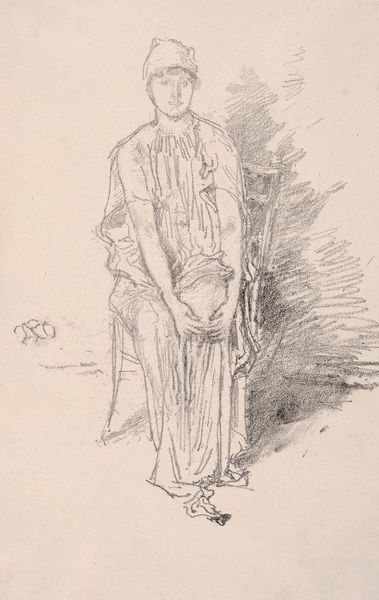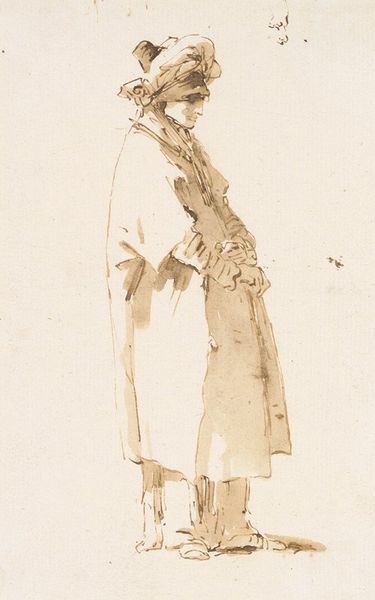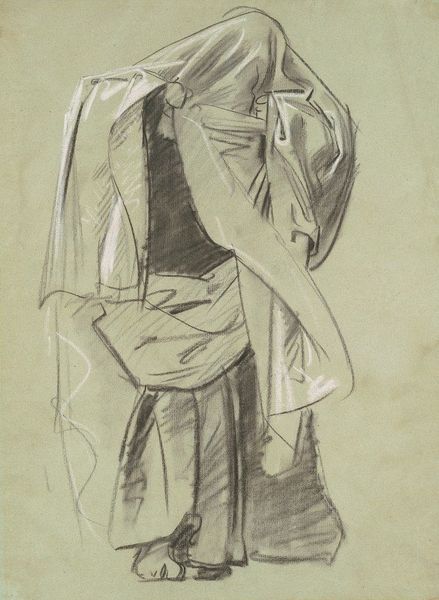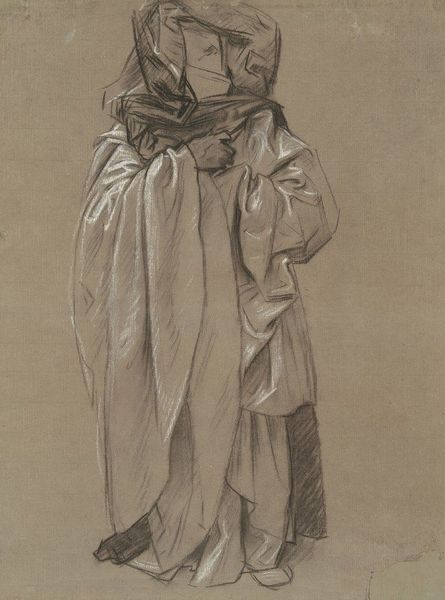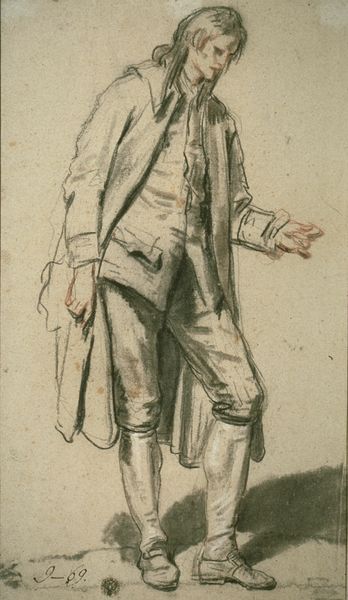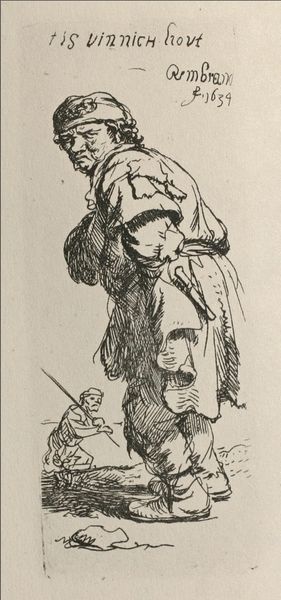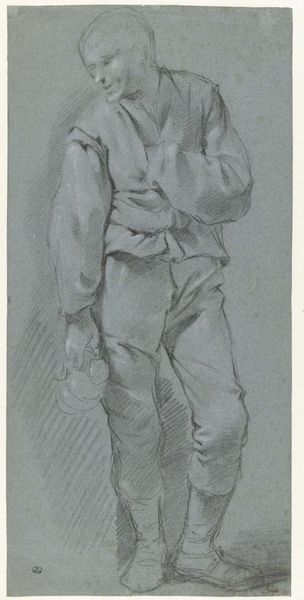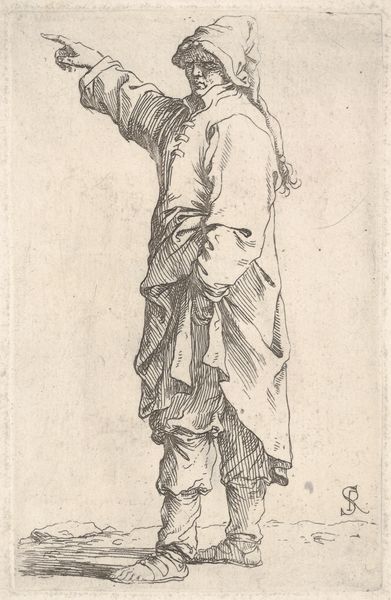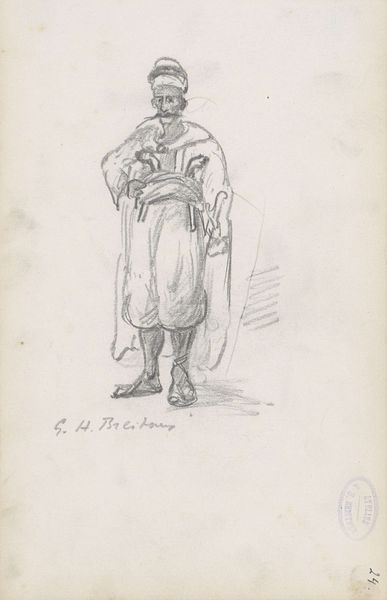
Dimensions: height 310 mm, width 199 mm
Copyright: Rijks Museum: Open Domain
Charles Louis Clérisseau captured this Roman Polichinelle in costume using pencil, pen, and watercolor. The figure of Polichinelle, with his dark mask and hunchback, is rooted in the commedia dell'arte, a theatrical tradition born in 16th-century Italy. He embodies the spirit of Carnival: chaotic, irreverent, and a temporary escape from social norms. We can trace his lineage back to ancient theatrical traditions where masked figures played a central role in rituals of inversion. Consider the recurring image of the fool or jester throughout history, from medieval court jesters to Shakespearean fools. They are granted the freedom to speak truth to power through humor, much like Polichinelle who uses his wit to challenge social conventions. There is something deeply human in our need for these figures; they allow us to confront our own follies. This echoes through time, reminding us of the cyclical nature of human expression and the enduring power of archetypes.
Comments
No comments
Be the first to comment and join the conversation on the ultimate creative platform.
